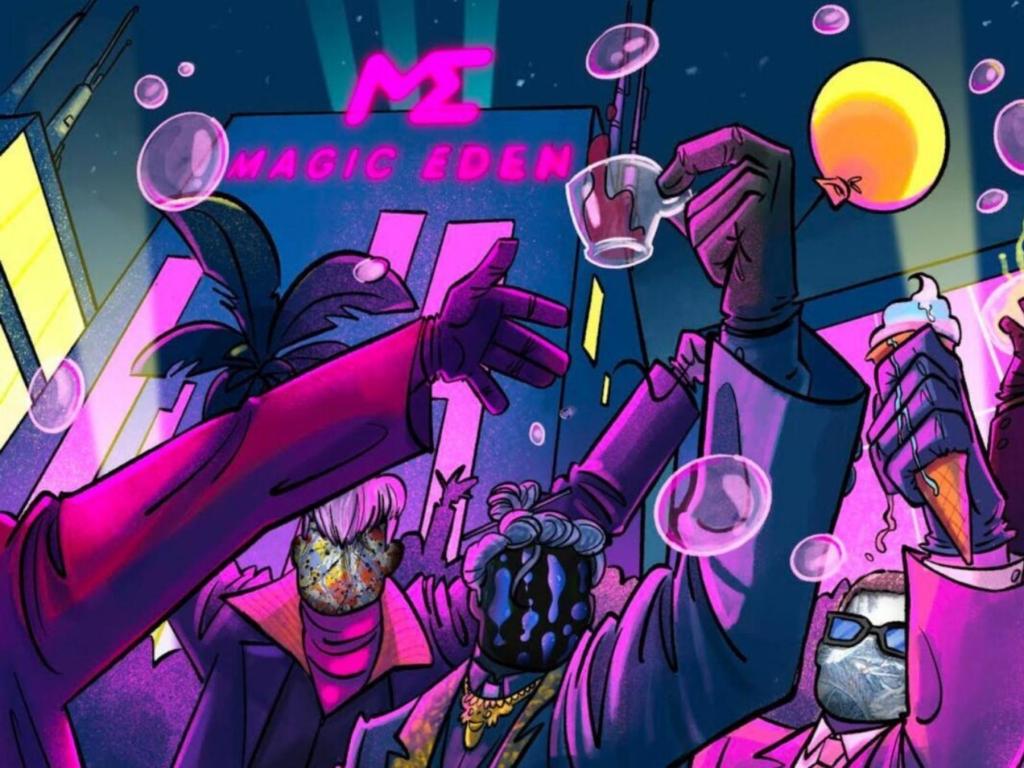Magic Eden drama: In a move that divided the Web3 art space, Solana-based NFT marketplace Magic Eden announced that it would be shifting to an optional royalties model.
In a Twitter thread on Friday, Magic Eden explained that the decision was “difficult to make” and was only implemented because “the market had been shifting towards optional creators royalties for a while” which has seen zero-royalty enforcing competitors like Hadeswap and Solanart begin to run away with increasing portions of its market share.
For many artists and NFT creators, royalties are one of the most fundamental incentives behind creating an NFT project, as it ensures creators can earn sustainable income from their work and promotes a greater sense of community amongst holders.
To this point, Magic Eden’s decision to move to an optional royalties model was not taken well by the broader community. These reasons were spelled out in detail by disgruntled members of the NFT community who chose to provide their honest feedback during Friday’s ‘Town Hall’ space.
“Royalties have been one of the biggest sales pitches for NFTs, particularly to brands and established artists,” wrote prominent NFT creator Sillytuna.
“Removing them is a spectacular way of shooting ourselves in the foot and plays fully into the idea that NFTs are only about trading. Stop this idiocy.”
Magic Eden Twitter
Magic Eden’s Twitter space which at its peak saw more than 1400 users tune in with many of the community members who opted to share criticism of the platform being removed from the conversation midway through voicing their complaints.
Pseudonymous founder of NFT project Solbots, Fastdagod further explained to The Chainsaw why removing royalties is such an unpopular and divisive move in the NFT Space.
“Royalties are in place to help the projects continue to build. It works as an incentive to project owners to get a kick back off driving the floor price and continuing updates,” he wrote.
“This is removing that incentive to build and will in return result in higher mint prices, more rugs, and more failed projects,” he added.
The recurring pain point shared by NFT creators was that the decision was implemented without warning.
The second was that Magic Eden had “backflipped” on their pre-royalties stance. In the past Magic Eden had been strongly critical of platforms that had opted to remove royalties, going as far as launching the controversial royalties enforcement tool Metashield midway through last month.
Optional royalties aren’t all bad
However, not all voices in the space were entirely critical of Magic Eden’s rollout of the optional royalties. FrankDeGods, the founder of one of the largest Solana NFT collections, DeGods spoke out in defence of optional royalties.
“I think royalties are a beautiful and powerful concept for NFTs. But the market is objectively disagreeing,” he wrote in a short thread.
Iconic digital artist Beeple also made his opinion on the matter clear, saying that while he remains in favour of royalties and “doesn’t love” what Magic Eden is doing — removing royalties isn’t necessarily the most terrible idea.
Beeple’s stance here can be best summarised from a tweet he posted in August this year, where he argued for a socially-enforced royalty model rather than a smart contract-based one.
Last month Solana-based NFT sales hit an all time high with the ‘y00ts’ project driving huge volumes of capital towards the Magic Eden platform, which currently controls an estimated 90% share of the entire Solana NFT market.





